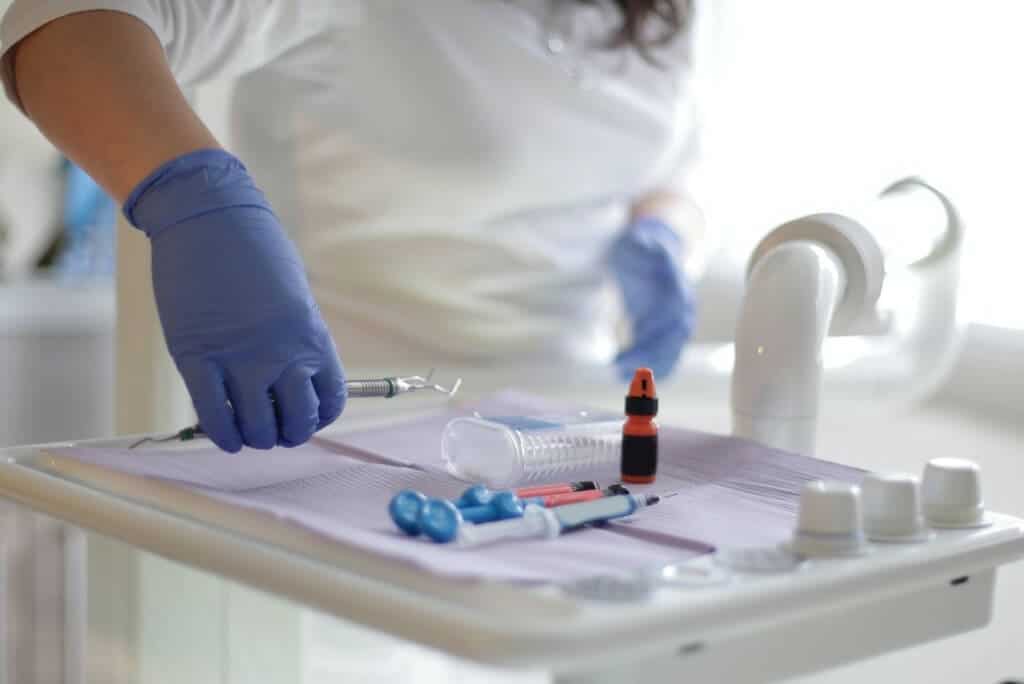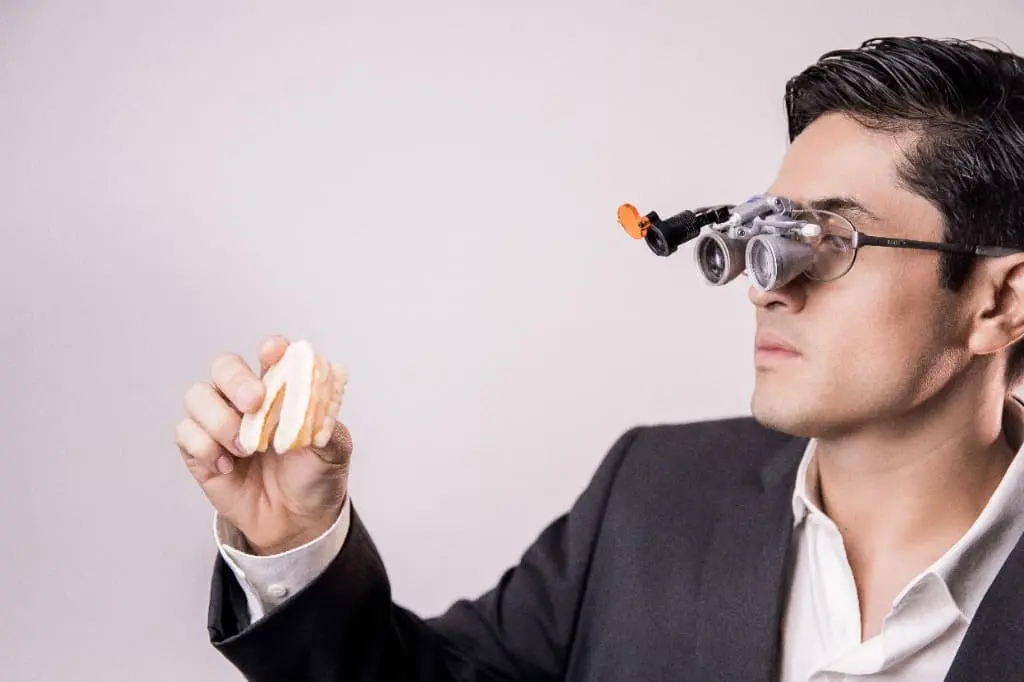If unfortunately you lost dental units, despite having placed restorations with resin or another type of dental repair, you may be concerned about your smile and your ability to eat and speak confidently. Now, with the help of technology and new materials, your smile can reappear through the use of a dentures that can be both fixed or removable.
In our Dental Clinic in Quito we have qualified dental laboratories that allow us to ensure the excellent quality of the prostheses that we make for you and thus rehabilitate your chewing function and the aesthetics of your smile.
Next you will know the types of prostheses or dentures that exist so that you have better information when you need to recover your teeth.
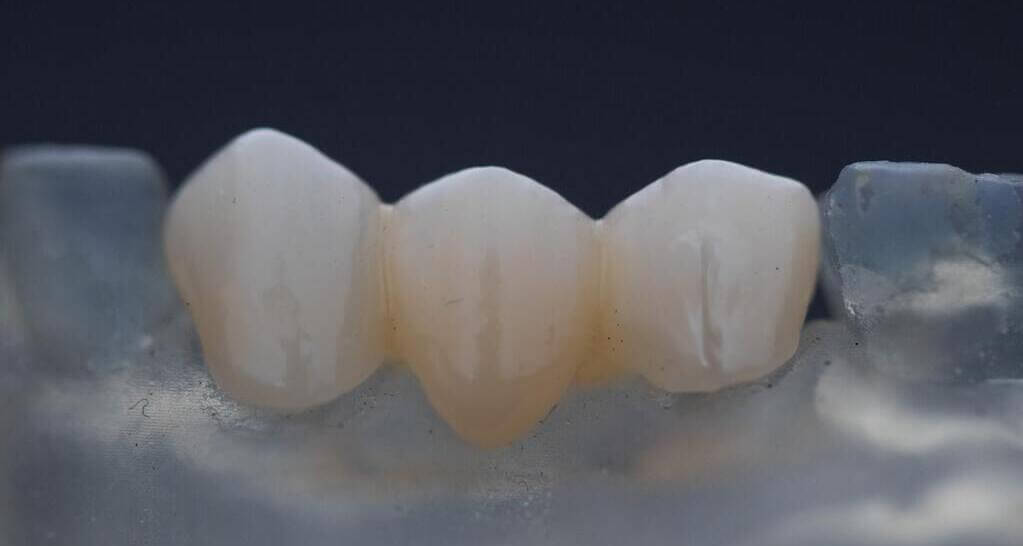
Table of Content
Key Takeaways
– If you have lost several or all of your teeth, dentures are a long-lasting, natural solution to restore your smile and improve your quality of life.
– With dentures, you will be able to enjoy your favorite foods again, speak clearly, and smile with confidence.
– Although it may take time to adjust to dentures and overcome some initial challenges, the long-term benefits are worth it.
– Remember to look for a qualified dentist who can provide you with the best care and advice throughout the entire process. Also be sure to consider the cost and possible financing options available.
What are Dentures?
Dentures are dental devices designed to replace missing teeth and restore the function and appearance of the mouth. They are a common and effective solution for people who have lost several or all of their teeth due to reasons such as periodontal disease, advanced tooth decay, or traumatic injuries.
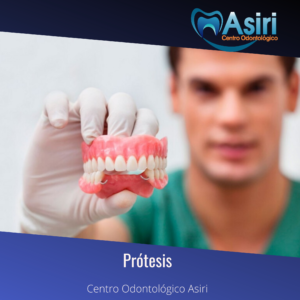
Why Dentures are important
Dentures offer a series of benefits, both aesthetic and functional. These are some of the most notable benefits:
- Restoration of chewing function: Dentures allow people to enjoy a wide variety of foods again by improving the ability to chew and grind food efficiently.
- Improved pronunciation: Teeth play a crucial role in sound production and proper pronunciation. With dentures, pronunciation problems caused by missing teeth can be corrected, improving the quality of speech.
- Restoration of facial appearance: Teeth play an important role in facial structure. Tooth loss can make the face look sunken or aged. Dentures help restore facial appearance and maintain a more youthful facial structure.
- Improved self-confidence: Tooth loss can affect self-esteem and self-confidence. Dentures restore smile and self-confidence, allowing people to express themselves freely and enjoy a better quality of life.
Problems that can be solved with dentures
- Absence of teeth: This is the main problem that is solved, these dental absences can be congenital, due to blows or dental trauma, due to severe caries that prevents dental restoration of the tooth and that makes the extraction of the tooth necessary.
- Digestive problems due to deficiencies in chewing: As there are no teeth, it is difficult to chew properly, and this affects the digestive system by not generating an adequate food bolus for its correct processing in the stomach.
- Deficiencies in phonation due to air leaks: to speak we need to move our mouth, lips, tongue and make the air flow in a very particular way. In this role, the teeth are structures that allow adequate air flow to create the sounds that make up human speech.
- Lack of aesthetics due to spaces without teeth (edentulous): The lack of some tooth is the cause of the decrease in the harmony of the smile when seeing the empty spaces where there were teeth before .
Our appearance on a TV show about Dentures
Types of Dentures
There are many types and many ways to classify them. The simplest way is according to its mode of retention in the mouth:
- Fixed Dentures: They remain in the mouth permanently
- Supported by natural teeth (pillars)
- Dental Crowns: restore only to the tooth on which they are supported
- Fixed Bridges: Sequence of dental crowns that are adhered using special cements to teeth used as abutments
- Adhesive or Maryland Bridges: False tooth that is held on the back of the two neighboring teeth by fins
- Supported by dental implants
- Implant-supported crowns: they are single-unit fixed prostheses whose “root” is an implant
- Fixed bridges on implants: they are fixed bridges with 3 or more pieces that are supported by at least 2 dental implants.
- Hybrid Prostheses: They are fixed total dentures screwed onto dental implants.
- Supported by natural teeth (pillars)
- Removable Dentures: prostheses that can be taken in and out of the mouth
- Partial Dentures: replaces two or more teeth
- Total Full Dentures: replaces all of the teeth.
- Overdentures: Total denture on clasp-type implants which allows them to be removed and inserted into the mouth
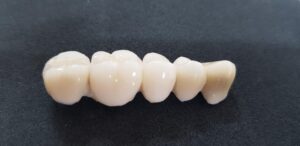
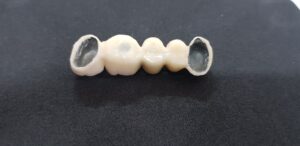
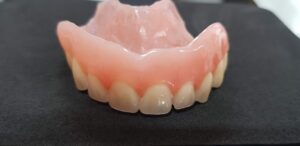
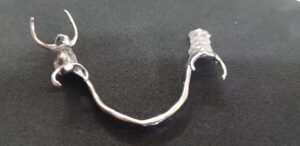
Caring for Dentures
Proper care of dentures is crucial to ensure their durability and optimal long-term function.
This point is so important that we have created a special article for the Maintenance and Care of Dentures
Adapting to wearing dentures
Adjusting to dentures can take time and require some adjustments. You may experience some initial challenges, but with patience and practice, you will be able to overcome them. Here are some common challenges people face when wearing dentures and how to overcome them:
- Initial Discomfort: At first, you may feel some discomfort or discomfort when wearing dentures. This is completely normal, as your mouth needs time to adapt to the new prosthesis. To relieve discomfort, be sure to follow your dentist’s instructions on how to wear and care for your dentures. You can also try rinsing your mouth with warm salt water to relieve inflammation and discomfort.
- Difficulty speaking: At first, you may find it difficult to speak correctly with your dentures in. This is because your tongue and facial muscles need time to get used to the presence of the prosthetics. To improve your pronunciation, practice speaking out loud in front of a mirror and reading out loud to exercise your facial muscles. Over time, you will notice a significant improvement in your ability to speak clearly.
- Eating problems: When eating with dentures, it can be challenging at first. You may find it difficult to chew certain foods or feel your dentures loosen while you eat. To make feeding easier, start with soft foods cut into small pieces. Avoid sticky or very hard foods that can damage your dentures. You can also use a denture adhesive to secure your dentures in place and prevent them from moving while you eat.
Remember that adjusting to dentures can take time and it is normal to experience some challenges at first. However, with proper care and practice, you can overcome them and enjoy the benefits of a restored smile.
How to find the right prosthodontist
When looking for a dentist to get dentures, it is essential to choose a qualified and experienced professional. Here are some tips to help you find the right dentist:
- Research and check reviews: Research different dentists in your area and check out reviews from their previous patients. Reviews can give you an idea of the quality of service and experience provided by the dentist.
- Check credentials and experience: Make sure the dentist is properly licensed and has the necessary experience fitting dentures. Ask about their training and additional certifications related to prosthetic dentistry.
- Request an initial consultation: Before committing to a dentist, request an initial consultation to discuss your needs and expectations. During the consultation, evaluate the dentist’s communication and attention to your concerns. Also take the opportunity to ask questions about the denture process and expected results.
Remember that finding the right dentist is essential to guarantee a satisfactory and long-lasting result. Don’t be afraid to ask questions and seek second opinions before making a final decision.
Cost of dentures in Quito
The cost of dentures can vary depending on several factors, such as the quality of the materials used, the complexity of the case, and geographic location. Here are some factors to consider when evaluating the cost of dentures:
- Type of dental prosthesis: The cost may vary depending on the type of prosthesis you choose. Complete dentures are typically more expensive than partial dentures because they involve replacing all of the teeth in a jaw.
- Materials used: The type of materials used in dentures can also influence the cost. High-quality dentures made from durable, strong materials such as cobalt-chrome metal frame dentures may have a higher price tag, but they also offer greater long-term durability and comfort.
- Additional procedures: In some cases, additional procedures, such as tooth extractions or gum treatments, may need to be performed before dentures are placed. These procedures can increase the total cost of treatment.
It is important to talk to your dentist about the cost of dentures and discuss available financing options. Some dental clinics offer flexible payment plans or accept credit cards that can help you cover costs. Don’t let cost be a barrier to getting the dentures you need to restore your smile and confidence.
Terms you should know:
- Edentulous: That does not have one or more teeth
- Occlusion: Synonymous with bite. The way the teeth fit over each other for the purpose of chewing.
- Acrylic: Pink-colored material in which most prostheses are made
- Chromium – Cobalt: Special metallic alloy used as a skeleton that increases the rigidity of some types of prostheses
- Retention: en The force that holds a prosthesis in place, normally these forces come from the hooks of the prosthesis or the gap that forms between the prosthesis and the internal mucosa of the mouth.
- Abutment: Natural tooth used as a post in a fixed bridge
- Model: exact replica of a person’s teeth. It can be a plaster cast or a 3D digital scan of the same.
- Alginate: gel material used to take an impression of the patient’s teeth and then make a plaster model .
- Tray: structure where the alginate is placed prior to taking the impression
- Bite impeller: exact replica of a patient’s bite made of wax.
- Sharpening: Wax prototype of a prosthesis. This is a specimen that is used to be tested in the patient’s mouth before making the final prosthesis. The purpose of this test is to verify and correct the prosthesis so that its final occlusion is satisfactory.
Steps to recover your teeth through a Dental Prosthesis
In general, these are the steps to have a Dental Prosthesis, remember that each case is different so these steps may vary.
Time required: 7 days.
In general, these are the steps to have a Dental Prosthesis, remember that each case is different so these steps may vary.
Tiempo Necesario : 7 days 0 hours
In general, these are the steps to have a Dental Prosthesis, remember that each case is different so these steps may vary.
Contact your trusted dentist
It is always important that each dental prosthesis case is previously evaluated, if you want take this first step, just contact us to schedule your evaluation appointment with our dentists
Evaluation
In this appointment, we will evaluate your condition, most likely we will require x-rays that allow us to determine the possibilities and choose the best path for you.
Selection of the dentutres to be made
We will discuss your case, we will present the existing options and we will recommend the best option as we continue. In this step you will already know the price of your dental prosthesis, since the technique and materials that your case needs will be known.
Taking Molds
They are obtained plaster models that are an exact replica of the inside of your mouth. This is done by inserting into your mouth some trays that contain a special material called alginate and that starting as a gel, then it will become more solid, thus copying the shape of your teeth and tissues.
Bite record
It is also necessary to copy the way you bite right now to be able to place the lower and upper models in their relative position as they are in your mouth.
Dentures design
With all this information, the models and the experience of your rehabilitating dentist, a design is made of the shape that the prosthesis should have, for example, whether or not it requires hooks and how they should be. All this design has the purpose that the prosthesis is very stable inside your mouth and that your chewing function is correct.
Wax prototype test
It is made in wax a prototype of your prosthesis that will be taken to your mouth to verify that it fits well and that the initially designed works correctly.
Adjustments
If necessary, Small adjustments are made to the prototype to ensure the success of the treatment.
Final denture fabrication
With the leading edge already adjusted and following special techniques, this prototype e n wax is used as a mold for your final prosthesis, which is usually made of acrylic.
Final tests and adjustments
With the prosthesis already made, you will have a new appointment where we will install it and make the adjustments that are required so that it is perfectly adjusted to your mouth
Controls
It is always very important that you periodically perform your Routine check-ups with your dentist so that the correct evolution of your case is verified and corrective measures are taken if necessary.
Herramientas
- Plastic Trails
- Destist specific tools
Materiales
- Acrylic
- Chromiun Cobalt
- Ceramic
Conclusions
Having missing teeth is a problem that you can solve with dental prosthesis techniques.
Don’t let missing teeth stop you from fully enjoying life. Try dentures and restore your smile with confidence. Remember that a bright smile is an open door to a life full of opportunities and happiness!
At the Asiri Dental Center, we can evaluate your case and you will have an honest opinion of us and also, based on our experience, you will have the information you need to make a decision adapted to your reality, contact us .




